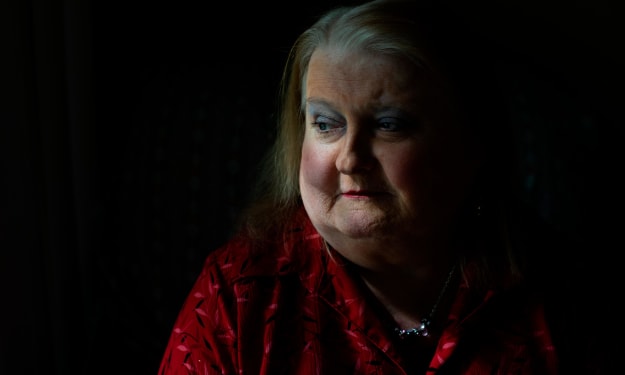Why ‘Write What You Know’ Is Bad Advice
Authors of Fiction Beware

'That fools may not speak wisely what wise men do foolishly'
This is the first piece of advice most writers are given. We were taught it at a young age by our English teachers. We are lectured by strangers who have never picked up a pen (or a laptop), who spout the cliche as if it is a profound piece of ancient wisdom that they have been gifted after years of learning.
Write what you know, but is this true?
J.R.R Tolkien became very successful in writing about wizards, hobbits and orcs. It’s a sure-fire bet he had never met an elf. H.G. Wells was neither invisible nor a time-traveller but possessed an imagination so great that his works are almost prophetic. Genetic engineering, telephones, television and lasers were all in his books before they were invented.
'Strong reasons make strong actions'
In the modern era, with access to the internet and a wealth of information at our fingertips, it’s not difficult for a writer to research any gaps in their knowledge to create vivid and realistic stories. Not only should we be looking for information, but different perspectives, before we make assumptions on subjects like growing up in a different culture or gender. If we create with limited experience, (or worse, thinking we understand when we don’t) ‘writing what we know’ could lead to major issues with our work if we do not have a varied knowledge of the subject. An example would be an older writer including a teen character when their only interactions are as a parent or grandparent. Teens behave differently when they are with each other than with adults and have unique references (slang, dress, means of communication) depending on the era they live. If this writer based it solely on their own upbringing and that of their family, they are likely to produce an unrealistic two-dimensional character.
'There is nothing either good or bad, but thinking makes it so'
If you’ve been alive on this planet longer than ten years, (which if you are reading this article I would hope so) then you’ve seen vast societal change. What is true for you, may not be true for others, especially if you are writing about aspects of your past. In the UK pre-1990s it wasn’t unusual for parents to leave their children upstairs asleep and then to go next door to the neighbours for a cup of tea. However, in other countries, this would be seen as neglect. In the UK after the Madeline McCann case, the same people now saw this behaviour as irresponsible. So if a writer wrote about being left home alone as a small child, meaning for it to be a cute anecdote from their childhood in the 1980s, it could have a very polarizing effect on the reader. There are many other examples of behaviour that may have been viewed as harmless previously (behaviour towards women, minorities, LGBTQ+ etc) that would not be acceptable now. The writer’s intended effect from ‘writing what they know’ might not always be the reaction that the reader will have. The audience’s viewpoint should take precedent as the eventual goal is a good story that will be read. It is no use to you or the publisher to have a book true to life that will gather dust for the next ten years and never sell.
Writing what you know comes with other problems. It encourages writers to transcribe stories exactly as they happen and paint them as fiction, when in fact what they have done is write an autobiography. This indulgent practice is not writing for the reader, it’s writing for the writer. If you are writing and calling it ‘therapy’ this also comes in the same bracket. The purpose of writing is to create a good story, and this type of authorship rarely does. The reader will not care that Bob dumped the main character on the Tuesday before the Mother’s Funeral if it slows down the pace of the book. This author will not care that the main character really should not be the focus of the book but in fact, the funny side character who has a more cohesive storyline. Unless you have the guts to hack away at your own life story, to admit to yourself which aspects of it will not translate on the page, then you should leave it in a journal. This does not mean you cannot use the pain that you’ve suffered. If you’ve experienced loss, then write a novel along this theme, but do not make it your life story. To write is to have an expanse of imagination. Create, do not copy.
To conclude, you can use aspects of your life experience, and your talents, but to be a writer is to have a capacity to understand people, process information and turn it into a great story. That is where our talent lies. To fall back on writing an incident blow for blow to create fiction shows an author’s insecurity when they should be trusting the creative process. Let go, step away and do not be afraid to change the world around you.
About the Creator
Reader insights
Outstanding
Excellent work. Looking forward to reading more!
Top insights
Compelling and original writing
Creative use of language & vocab
Easy to read and follow
Well-structured & engaging content
Expert insights and opinions
Arguments were carefully researched and presented
Eye opening
Niche topic & fresh perspectives
On-point and relevant
Writing reflected the title & theme





Comments (2)
Great piece on advice on writing.
This comment has been deleted
The only people who say write what you know haven't written a word in their lives. Write what you want Great article, well written, thanks for the read